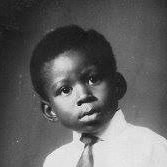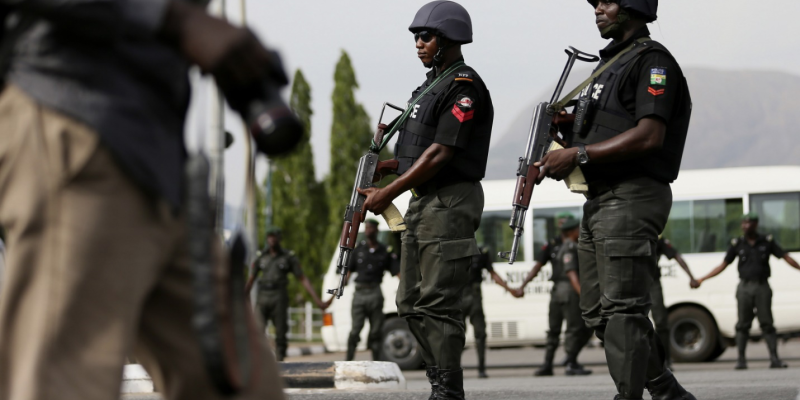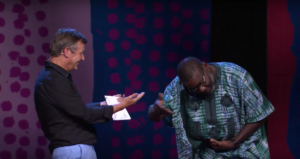Against the increasing call for a comprehensive reform of the Nigeria Police Force, this piece is eerily prescient and relevant. I think that like most national institutions nothing has really changed for the better with our police force in the 37 years this piece was written.
Although I now laugh at my youthful earnestness and genuine empathy with the police (I still sympathize with them at a human level) I now understand that the Nigerian police is in the shape it is because like most things Nigerians it was badly designed and no one has seriously tried to fix or redesign it. I also laugh at the numbers, 80,000 policemen for a population of about 80million and just 5,000 cops for the 5 million residents of Lagos. Then as now, the policeman’s dilemma remains. Enjoy
“Oga wetin you carry?”
To most motorists driving up to a checkpoint, that is a familiar question. The interrogator, usually an armed, tough-looking mobile policeman, has sadly come to reflect – if not epitomise – the breakdown of law and order in the society. A self-destructive society that has to be heavily policed, to protect it from itself!
For many, that brief intimidating encounter is as close as they ever get to talk to a policeman; except, of course, if they run foul of the law, and are invited for a ‘chat’.
The policeman, the traditional custodian of law and order, then becomes a mindless and brutal enforcer of obscure laws, which most times seem discriminatory. But the police are not at all times mindless, or brutal, or even discriminatory. The Nigerian Police Act, establishing and defining the role of the police force is definitive: the job of the policeman includes (a) prevention of crime (b) detection and apprehension of criminals (c) protection of life and property (d) enforcement of law (e) the maintenance of law and order and (f) the performance of other duties, including military, within and without Nigeria, as may be directed by the head of state. As regards the last function, the Nigeria Police was part of the peacekeeping contingency sent by Nigeria to the Congo, in the early sixties.
The Nigeria Police Force is one of the more useful legacies left behind by the colonial institution. Its genesis lies as far back as 1861, in the authority known as constabulary guards. But it took a definite shape, and gained its identity as the Nigeria Police on April 1, 1930, when the North and South police forces amalgamated into one. And it has grown since then, into a blue army of over 80,000 men and women.
This number, juxtaposed with a tentative national census figure of 80 million, becomes a ratio of 1:1,000 (one to one thousand).
And so, for every one thousand Nigerians (most of them unruly) there is only a solitary policeman to keep the peace (no wonder there is so much disorder). This ratio unerringly duplicates itself in the numerical strength of the Lagos State Police Command. For the five million or so inhabitants of Lagos State (most of them thieves), there are only about five thousand policemen. The United Nations recommendations call for a ratio 1:200 (that is, one policeman to every two hundred citizens).
But given the many factors militating against the police, it is unlikely that this specification would ever be met. The most obvious reason being that nobody wants to join the police … it’s more lucrative to join the customs office or become a politician instead.
The police evolved out of society’s need for specialisation, and division of labour. Though the maintenance of law and order is in everybody’s interest and is even everybody’s responsibility, it is impossible for everybody to be a policeman professionally.
So, the society employed, trained, and empowered them with the authority to act as paid ‘maiguards’. But like ‘maiguards’, it seems they are expected to only stand guard outside your house, and not to come in to eat and drink with you, not to talk of using your toilet!
The society grudgingly accepts the policeman as a member of society but does not expect him to share its values. For the policeman to effectively perform his duties, he has to detach himself from the emotive sensibilities of the public, restrict himself to the law, all without losing vital contact with the conscience of the public he is trained to protect.
But in detaching himself, he often becomes alienated from the public, of which he is an integral part. And so, to the public he becomes and ogre — or at best a mindless insensitive moron, who should be feared, detested and avoided. “The police is your friend”, they tell us, but how many people have policemen as friends?
With that ugly stereotype, lodged firmly at the back of most minds, it becomes clear why the public is most times uncooperative with the police, and why the police, in retaliation, unconsciously engender that stereotype. And so, what we have is a catch-22 situation.
The public is quick to point out that the Nigeria Police Force is corrupt. True, but is the police not manned by Nigerians, who in turn, are part of the Nigerian society?
Arguably, the police as an institution should be above the decadence and immorality of society. The policeman should ideally be the personification of equity, justice, and honesty. But unfortunately, your typical Nigerian policeman hardly meets these standards. Most are venal, semi-illiterate, intoxicated by power, and these days, quick to pull the trigger. But society breeds its own police.
And, as to accusations of the police accepting bribes… it takes two to tango. Somebody (most times, the public) has to offer the bribe before it is accepted. That being said, policemen have been known to demand a bribe before carrying out their duties or to look the other way, as the case may be.
That shark-edged desperation, I believe, is an index of one thing: their conditions of service. Policemen are notoriously underpaid for the type of risks they take in the performance of their duties. And it was a damning indictment on the insensitivity of our leaders and politicians, that efforts to improve the salary scale of the police were thrown out when tabled before the House, over a year ago.
It’s a caustic irony; that the ‘law’ is compelled by the law to maintain the status quo, which is inimical to the law as an institution, and to the law as a process.
Members of the Nigeria police by law, cannot unionise or go on strike, for whatever reason. Though, in India, there exists a powerful Police Wives Union that acts as a pressure group, to agitate on behalf of their husbands. Also, in Britain, there is the Police Federation, although by law, they are not allowed to affiliate with the National Labour Movement.
In Nigeria, there is no such body to fight on behalf of the police and since the ruling classes hardly ever join the police force, they do not seem to care about your average policemen on the beat. I wonder what would have gone on in the mind of a police orderly attached to a senator who, the day before, threw out the motion for the improvement of the living standards of policemen?
Or in the mind of the mobile policeman who is sent to quell, “by whatever means necessary,” a students and market women demonstration against the glaring inequality and social injustice in society. Or the police officer who knows that it would be justifiably better, to train the barrel of his rifle to the fat stomachs of corrupt politicians, than at the fleeing bag snatcher.
The policeman, I am sure, is all too aware of these ambiguities and inconsistencies, of the so-called justice he is conditioned to uphold. He knows that individual members of the public expect him to keep the law, but waive it when their own interests are concerned or affected. He also knows how easy it is to manipulate the FORCE, as a force for the imposition of the will of a minority, on a majority.
The Nigeria Police Force has come a long way since the days of its progenitors, the Bow Street Runners. But it could go even further given certain conditions… maybe if the police went on strike for just two hours, the nation would appreciate its value, and bring into national focus, their hardship.
The Punch,
Saturday, May 14, 1983



